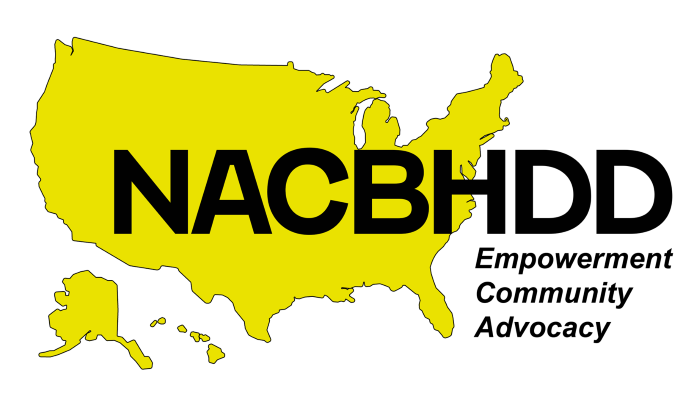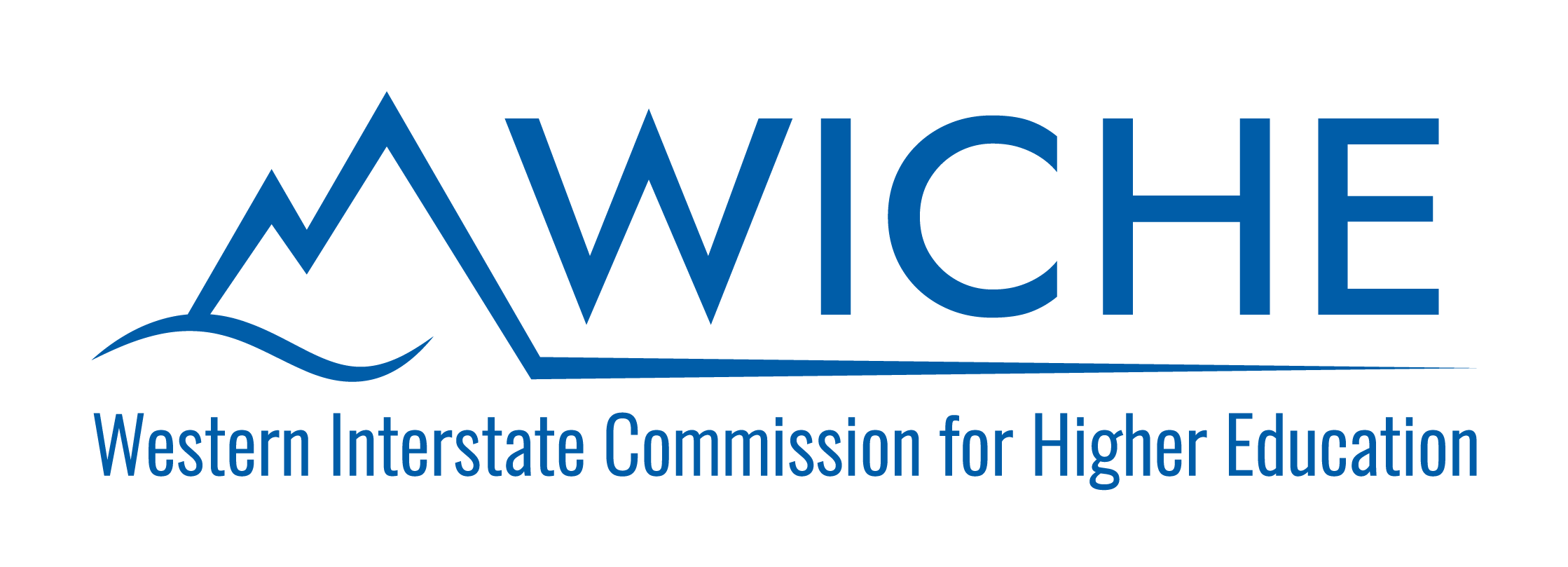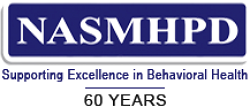Presented by:




National Dialogues on Behavioral Health Conference 2020
Implementing Crisis Response at State and Local Levels: New Paradigms, Partnerships and Innovative Approaches
The 61ST Annual Conference (1st Virtual Conference)
Date: 1 Session – Each Thursday September 17 – October 22, 2020
Time: 2:00 pm to 4:30 pm ET
This year the focus of the National Dialogues on Behavioral Health conference that is usually convened in New Orleans was going to focus on cutting edge and innovative approaches to behavioral health crisis response at both state and local levels. But then, another crisis came along almost to underline the importance and significance of the topic that we had selected. The behavioral health world, including its crisis response systems, has been scrambling to adapt and adjust to the new realities of the Covid-19 Pandemic. We thought it was critical that we take these new realities into account, both in terms of conference content and conference format, to dialogue on this important topic. Join us for 6 consecutive weeks as we address the emerging issues and innovations related to behavioral health crisis response in this new environment.
Conference Rate
ONLY $100.00 for all six sessions or ONLY $25.00 for each individual Session
Agenda
Session 1: Thursday September 17th
BEHAVIORAL HEALTH CRISIS RESPONSE AND COVID 19: NATIONAL, STATE AND LOCAL RESPONSES
Several states have provided leadership and developed models for adapting behavioral health services and crisis response to the current Covid-19 pandemic. This has happened in tandem with development of national guidelines for behavioral health crisis response and the implementation of a national 988 crisis response access code. Local entities have also made unique and innovative changes. This session will provide an overview of the changes and adaptations that are currently occurring nationally in the area of behavioral health crisis response.
Presentations:
Implementing Behavioral Health Crisis Response at State and Local Levels in 2020: Paul Galdys, MBA, CPRP, Deputy CEO, RI International;
COVID-19 in 2020: A Decade’s Worth of Transformation in Six Months: Judy Fitzgerald, Commissioner, Georgia Department of Behavioral Health;
New Paradigms, Partnerships and Innovative Approaches: Rochelle Dunham, MD, Executive Director, Metropolitan Human Services, New Orleans, LA
Session 2: Thursday September 24th
CRISIS RESPONSE FOR PERSONS WITH SUBSTANCE USE DISORDERS: WHAT WORKS
Funding has been made available through federal and state governments and private foundations for prevention, education, overdose reversal medications and outreach, and in and outpatient detoxification and treatment. Many of these efforts have not resulted in a substantial decline in overdose deaths, due to the influx of more potent and deadly synthetic opioids such as fentanyl, and more recently, the Covid-19 pandemic. This session will address how communities are responding to the expanding use/abuse of opioids and adjusting their substance use crisis response systems during the Covid-19 pandemic.
Presenters: William Clark, MD, ER doctor and Coroner, Baton Rouge, LA; Tonja Myles, CPSS Peer Specialist, Set Free Addiction Resource Services, Baton Rouge, LA; Gloria Baciewicz, MD, and Patrick Seche, University of Rochester
Presentations:
Response to the Pandemic for Persons with Substance Use Disorders: What Works: Gloria J. Baciewicz,
MD and Patrick Seche, MS, CASAC; Strong Recovery; UR Medicine Recovery Center of Excellence, HRSA
Rural Communities Opioid Response Program (RCORP) & Rural Center of Excellence in Substance Use
Disorder
Louisiana’s Opioid Epidemic: William “Beau” Clark, MD; East Baton Rouge Parish Coroner
Persons with Substance Abuse in Crisis: A Peer Specialist Perspective. Tonja Myles, CPSS Peer specialist, Set Free Addiction resource services, Baton Rouge, LA (No PowerPoint presentation)
Session 3: Thursday October 1st
BEHAVIORAL HEALTH CRISIS RESPONSE AND PEER SUPPORT: THE EMERGING WORLD OF DIGITAL PEER SUPPORT
Peers are indispensable during a crisis and in linkages, system navigation and needed supports, both for mental health and substance abuse consumers. Peers support warmlines, hospital discharges, hospital ERs, and law enforcement and they provide supports related to community placement, job placement and community living. How have these supports been implemented during the Covid-19 pandemic? New models are emerging related to digital peer support. This session will review best practices in providing such supports.
Presenters: Thomas Lane, Senior Director, Community and Recovery Supports, Magellan Health Services; Karen Fortuna, Dartmouth College, New Hampshire
Presentations:
Using Digital Patient-Facilitated Networks to Support Medical and Psychiatric Self Management between Clinical Encounters: Karen L. Fortuna, PhD, LICSW; Assistant Professor; Department of
Psychiatry, Dartmouth College
Peer Specialists Roles in Crisis Systems Services: Thomas Lane, Senior Director, Community and
Recovery Supports, Magellan Health Services
Session 4: Thursday October 8th
BEHAVIORAL HEALTH CRISIS SERVICE SYSTEMS – URBAN AND RURAL SERVICE CHALLENGES AND OPPORTUNITIES
The need for adaptation and flexibility to be more responsive has become apparent, even for evolving crisis systems, both in urban and rural areas. The panelists in this session will address best and emerging crisis response practices in these disparate settings at both state and local levels.
Presenters: Wayne W. Lindstrom, PhD, VP, Western Region, RI International, Inc.; Wendy Farmer, LPC MBA AVP Crisis Product, Beacon Health Options; Mary Hoefler, MS, LCSW, Manager, Crisis Services Colorado DHS/Office of Behavioral Health; Mary Peck, Communication Director, Colorado Department of Agriculture
Presentations:
Crisis Service Systems – Urban& Rural Service Challenges & Opportunities: Wayne W. Lindstrom, PhD;
VP Western U.S.; RI International, Inc.
Behavioral Health Crisis Service Systems- Urban and Rural Service Challenges and Opportunities:
Wendy Martinez Farmer, LPC MBA; AVP Crisis Product/Corporate Strategy, Beacon Health Options
Colorado Behavioral Health Crisis Services: Mary Hoefler, MS, LCSW, Manager, Crisis Services
Colorado Department of Human Services/Office of Behavioral Health; Mary Peck, Communication Director, Colorado Department of Agriculture
Session 5: Thursday October 15th
TECHNOLOGY, BEHAVIORAL HEALTH APPS AND TELEHEALTH PLATFORMS: BEST PRACTICES IN TECHNOLOGY AND BEHAVIORAL HEALTH
Digital Health encompasses a wide range of technology and artificial intelligence based applications including, telehealth, software that provides clinical decision support and mobile health applications (apps). The onset of the Covid-19 pandemic has led to an acceleration in the adoption of these tools. How are these tools used to address the needs of individuals at risk of, or who are experiencing a crisis? What criteria are used to determine the scientific effectiveness of clinical support and of mobile health apps of which there are literally thousands? This session will address these issues.
Presenters: Lisa A. Marsch, PhD, Director, Center for Technology and Behavioral Health, Geisel School of Medicine at Dartmouth, Dartmouth College; Kristin Neylon, MA, Senior Project Associate, NASMHPD Research Institute; Stephen Philippi, PhD/LCSW/CCFC, Chair, Community and Behavioral Health Sciences, Louisiana State University, Baton Rouge
Presentations:
The Clinical Effectiveness of Digital Therapeutics for Behavioral Health: Lisa A. Marsch, PhD, Director, Center for Technology and Behavioral Health, Geisel School of Medicine at Dartmouth, Dartmouth College
SMHAs’ Use of Technology to Improve the Delivery of Behavioral Health Crisis Services in the United States: Kristin Neylon, MA, Senior Project Associate, NASMHPD Research Institute
Responding to Crisis: Telehealth & Referral Network Adoption & Adaptations among Louisiana Behavioral Health Providers: Stephen Phillippi, PhD; Professor- LSU School of Public Health; Program Chair- Behavioral & Community Health Sciences; Director- Center for Evidence to Practice
Session 6: Thursday October 22nd
BEHAVIORAL HEALTH CRISIS RESPONSE FOR PERSONS WITH SPECIAL NEEDS (Intellectual Disabilities, Deaf/Hard of Hearing, Children and Adolescents)
Persons with special or complex needs are a subset of persons seeking crisis care that often do not get the recognition or special attention they deserve. Persons with intellectual disabilities, persons with language and communication challenges (e.g. persons who are deaf, or non-English speakers), and children and adolescents, are part of this subset. What are the special issues they confronted during the Covid-19 pandemic? How were and how are these handled at different points in the crisis continuum? What are the implications for future interventions? This session will try to provide answers to these questions.
Presenters: Steve Hamerdinger, Director, Office of Deaf Services, Alabama Department of Behavioral Health; Deb Pinals, Medical Director, Michigan Department of Health and Human Services; Kenneth Rogers, MD, Commissioner, South Carolina Department of Mental Health
Presentations:
Elements of a Culturally and Linguistically Appropriate Crisis Response System for Deaf People: An Overlooked, Misunderstood, and Neglected Community: Steve Hamerdinger, Director; Office of Deaf Services, Alabama Department of Mental Health
Crisis Services: Addressing the Needs Across Diverse Populations: Debra Pinals, Medical Director, Michigan Department of Health and Human Services
Behavioral Health Crisis Services for Special Populations: Children and Adolescents: Kenneth M. Rogers, MD, MSPH, MMM State Director, South Carolina Department of Mental Health